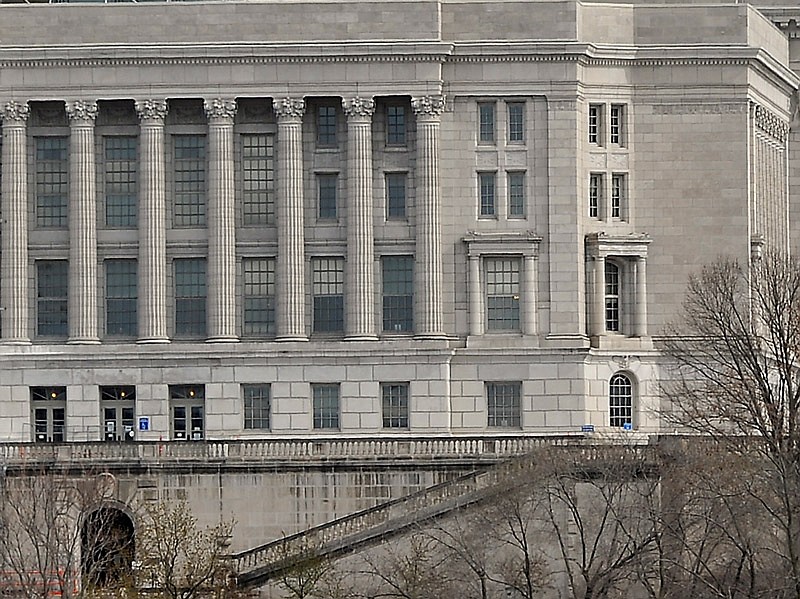The Missouri Senate bill containing Gov. Mike Parson's agenda for fighting violent crime through a special legislative session that started this week took testimony Tuesday, with proponents especially enthused about certain parts, and opponents taking issue with different aspects of the legislation.
Parson called a special session for state lawmakers to address a surge in violent crime this year, especially in the state's largest cities, and the session began Monday with bill filing in the Senate.
Parson called legislators back together to:
- Eliminate and prohibit the requirement for St. Louis law enforcement officers to have to live in the city, though an officer would still be required to live within an hour's response time of the city.
- Require courts to determine if a juvenile should be tried as an adult for unlawful use of a weapon and armed criminal action charges.
- Allow certain statements by witnesses to be admissible in court that would otherwise not be allowed under current law.
- Create a Pre-trial Witness Protection Fund.
- Criminalize knowingly encouraging, aiding or causing a child younger than 17 years old to engage in a weapons offense.
- Increase the penalty for a person who knowingly sells or delivers a firearm to a child without the consent of the child's parent or guardian.
Parson's agenda is contained in SB 1, filed by state Sen. Doug Libla, R-Poplar Bluff.
The bill was heard Tuesday before the Senate Transportation, Infrastructure and Public Safety committee, of which Libla is Chairman.
Many of the numerous supporters for the bill spoke in favor of eliminating the residency requirement for St. Louis police officers.
Currently, St. Louis law enforcement officers have to live within the city for seven years before being allowed to move to somewhere else within an hour's response time of the city.
The bill would eliminate that requirement, but officers would still have to live within one hour's response time.
St. Louis police officers, leaders of law enforcement advocate organizations, and city and state law enforcement leaders were among those who testified in support of the bill in the Senate chamber, with witnesses speaking from the 4th floor press gallery area of the chamber and the senators down on the floor in their usual seats.
Supporters said allowing officers to live where they wish will help with their mental health, as well as draw in more recruits for understaffed departments.
"Our officers are physically, emotionally and spiritually drained," said Col. John W. Hayden, Jr., St. Louis' police commissioner.
Hayden said more officers are needed immediately, and the number one barrier to recruitment is the residency rule.
St. Louis Metropolitan Police Department Sergeant Charles Lowe, Kelli Lowe - who is president of the National Police Wives Association and Charles' wife - and others spoke about the difficulties officers face in having to live in the areas where they've also experienced trauma on the job. Charles was shot in 2015.
Other supporters of the bill spoke in favor of the proposed witness protection program.
Lisa Jones, head of the victim services unit in the St. Louis County Prosecuting Attorney's Office, said she's been a victim advocate for 30 years and is seeing many more witnesses now being threatened - including with hitmen attempted to be hired to kill them.
Jones described how her office has been able to protect witnesses in two cases involving attempted hiring of hitmen, using a witness protection program to give witnesses or victims safe shelter.
"It's a game-changer for us," and she said it could also be for other agencies.
Russ Oliver said, "Throughout the state, witness protection is a serious issue."
Oliver - who is the prosecuting attorney of Stoddard County and spoke on behalf of the Missouri Association of Prosecuting Attorneys - also said "these are not problems unique to St. Louis or Kansas City."
The bill would also allow some witness statements to be admissible in court that would otherwise not be under current law.
Adam Woody, a Springfield attorney and the president of the Missouri Association of Criminal Defense Lawyers, said the bill's language is too vague about what would constitute a defendant engaging in wrongdoing with the purpose of preventing a witness from testifying. If that were found to be the case, evidence otherwise considered hearsay could be admissible.
Woody worried a witness failing to appear simply because they hadn't been subpoenaed could negatively affect a defendant.
He was also concerned the portion of the bill about requiring juveniles to have a hearing on whether to be certified as an adult for unlawful use of a weapon and armed criminal action charges could lead to incarceration of children - something he said is not in the interest of the justice system.
Mo Del Villar, ACLU Missouri's legislative associate, likewise said more children being put in front of a judge will mean more children getting certified as adults, and she added there's also "certainly a racial bias concern," with African American youth being more likely to receive an adult prison sentence than their white peers.
Del Villar also submitted written testimony on behalf of Empower Missouri and the NAACP.
No action was taken on the bill Tuesday. It's next scheduled for an executive session in a 3:30 p.m. Aug. 5 committee hearing - location yet to be announced.

